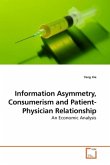E-Health is the comprehensive use of ICT in
healthcare. It is promising to solve several major
future challenges in healthcare by improving
efficiency, offering better treatment options and
helping to create a new generation of informed and
involved patients. However, controversies are high as
there is little empirical evidence on these benefits.
Estonia has assumed a pioneer role by implementing
eHealth on a nationwide level. The project is still
in the implementation phase but is likely to affect
the traditional physician-patient relationship.
This paper investigates how Estonian physicians
expect the healthcare service provision to be altered
in terms of quality, efficiency and safety. The paper
also investigates how the broader network around the
physician is likely to be affected.
The research is built around a single case of Estonia
where the sample consists of three major hospitals on
the forefront of the implementation process.
The results indicate that the physician-patient
relationship will be mainly negatively affected
through physician''s perceptions. The broader network
will change in relation to enhanced mobility and
shifts in persistent roles.
healthcare. It is promising to solve several major
future challenges in healthcare by improving
efficiency, offering better treatment options and
helping to create a new generation of informed and
involved patients. However, controversies are high as
there is little empirical evidence on these benefits.
Estonia has assumed a pioneer role by implementing
eHealth on a nationwide level. The project is still
in the implementation phase but is likely to affect
the traditional physician-patient relationship.
This paper investigates how Estonian physicians
expect the healthcare service provision to be altered
in terms of quality, efficiency and safety. The paper
also investigates how the broader network around the
physician is likely to be affected.
The research is built around a single case of Estonia
where the sample consists of three major hospitals on
the forefront of the implementation process.
The results indicate that the physician-patient
relationship will be mainly negatively affected
through physician''s perceptions. The broader network
will change in relation to enhanced mobility and
shifts in persistent roles.








